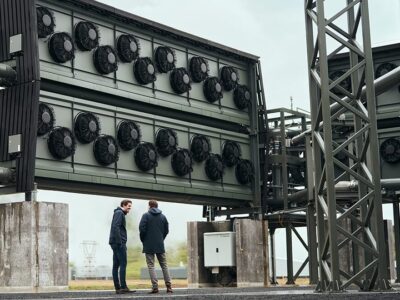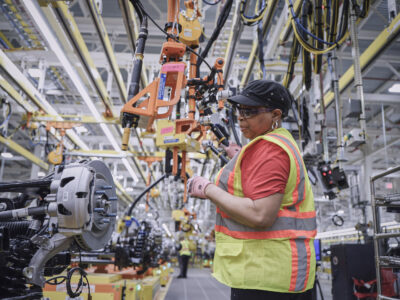One of the biggest issues surrounding electric vehicles (EVs) is not the cars but the battery minerals. Plenty of outlets have pointed to other issues, like the charging network and consumer demand, which are just as essential to the electric transition. However, the fact is that without a steady supply of lithium, cobalt, nickel, and copper, there won’t be any EVs. Sourcing these metals remains a hefty burden despite improvements in mining.
A study by The Metals Company and Quantum says EV battery demand will increase six-fold by 2030. The need for a steady supply of critical battery minerals is growing. However, the U.S. is almost entirely reliant on foreign supplies, and geopolitical issues could cut those off at any moment. A diverse, domestic supply chain is necessary to meet growing EV demands.
More developments in domestic lithium sourcing have alleviated some concerns about that metal. However, cobalt and nickel are in a more precarious position. According to the study, cobalt trade partners need to be re-established across several countries, whereas nickel’s issue is there’s “not enough supply in FTA countries to meet U.S. energy transition-related demand ambitions.” Copper is not classified as a critical mineral, but it’s still important and used in EV batteries and solar panels.
Finding Another Source
The Metals Company may have a partial solution to solve this problem: get them up from the sea floor. However, the firm’s plan does not involve digging up the sand from the bottom of the ocean. The company specializes in deep-sea mining, targeting a specific mineral compound: manganese nodules.
These mineral compounds, formed after millions of precipitating metal particles in seawater and sediment, contain four essential EV battery minerals in one ore.
They float around the sea floor, ready to be harvested, are non-toxic compared to other ores, and can potentially deliver high levels of these critical materials.

Photo Courtesy The Metals Company
Manganese nodules were discovered in the 19th century but weren’t mined until the 1970s. Mining consortiums tested the commercial viability of the rocks, finding that processing these into stable metals could be fruitful for metal supply chains. As mining technology has improved, deep-sea nodule sourcing has become more accepted.
Exploration And Testing
In 2011, the United Nations granted The Metals Company authority to mine in international waters. The UN’s International Seabed Authority gave the company exploration rights across three subsidiaries: Nauru Ocean Resources Inc., TOML, and DeepGreen Engineering Pte. Ltd. Each company was sponsored by the Pacific Island nation of Nauru.
Exploration and mining involved sending underwater drones to collect samples. Scientists then estimated the abundance of minerals in these areas.
They found that one area had enough metal to supply 140 million EV batteries. Estimates suggest that all areas could reach up to 280 million EVs, equivalent to the modern American passenger vehicle fleet.
The company says these nodules can produce 90% less carbon dioxide equivalent emissions than using land-based ores. It’s also more socially conscious; it doesn’t uproot communities like land-based mining is known for.
The Metals Company and Quantum study’s analysis says that nodules contain up to 11% cobalt, 43% nickel, 18% copper, and 28% manganese. The Metals Company wants to take these nodules to the surface and process them into near-zero solid waste.
Environmental Concerns
Ocean conservationists have expressed concerns about deep-sea mining. Many say it is unclear what removing the nodules will do to the sea’s ecosystem. Reuters pointed to a study published in the February 2023 edition of Nature Ocean Sustainability that claimed sediment plumes created by the robots harvesting the nodules “could disrupt animal migrations.” There is also worry of harm to other marine life, such as coral and anemones.
In November 2023, The Metals Company wrote an open letter about its process. The firm mentioned that to meet EV battery demands, the world would need 500 new mines in the next five to 10 years.
The company also argued that land-based mining is becoming extremely expensive, and often, mineral reserves don’t become mines or the socioeconomic tool mining takes on communities. The Metals Company made the case that manganese nodule sourcing from the sea floor is inherently safer, more cost-effective, less disruptive to the environment and people’s lives, and cleaner.

Photo Courtesy Kiara Acevedo
According to the company, up to 90% of entrained sediment is separated from nodules inside The Metals Company’s collector. Nodules travel up a riser system to the production vessel. They are dewatered, with all residual sediments and fines returned below the photic zone.Offering a safer mining alternative to meet EV battery demands is imperative to reach net-zero carbon goals. More carmakers are producing EVs at a rapid pace, making the need for a sustainable stockpile of minerals for efficient batteries more critical than ever. Time will tell if the vital supply chain includes the ocean floor.





